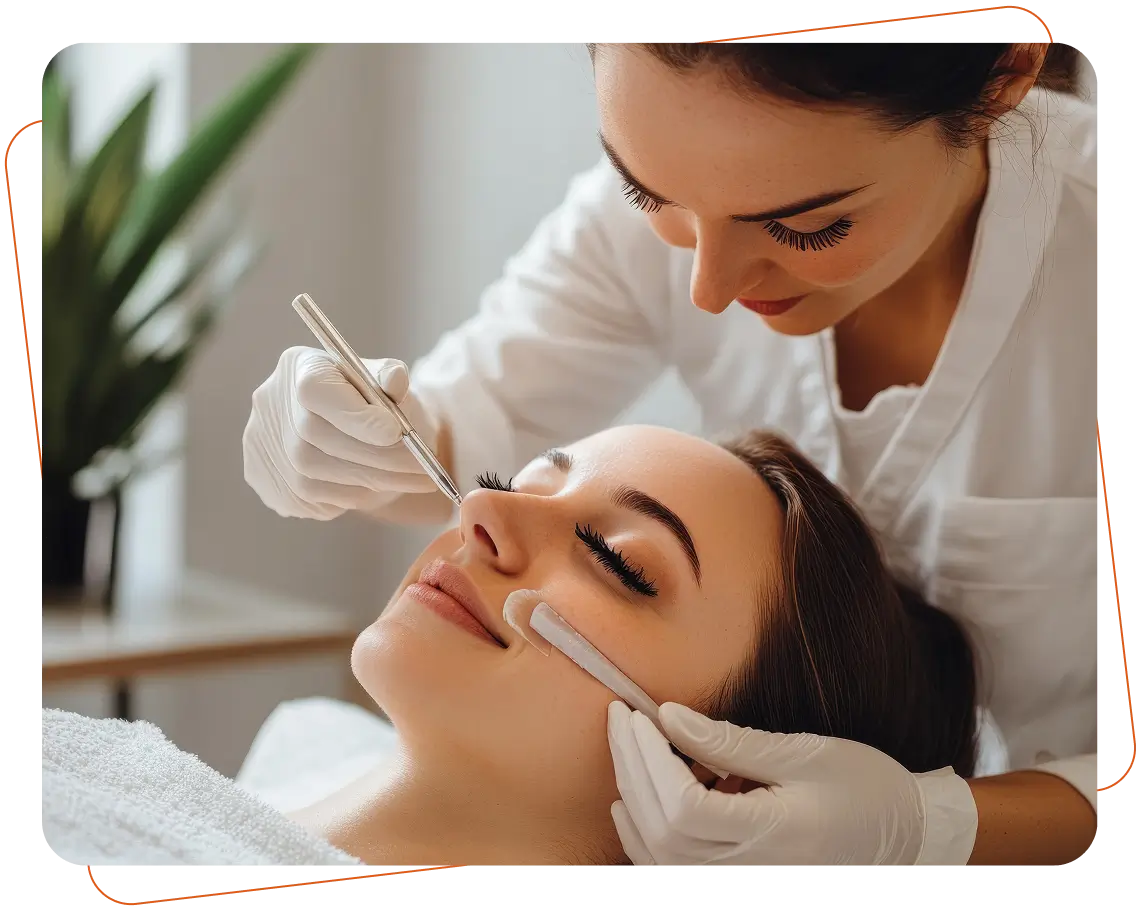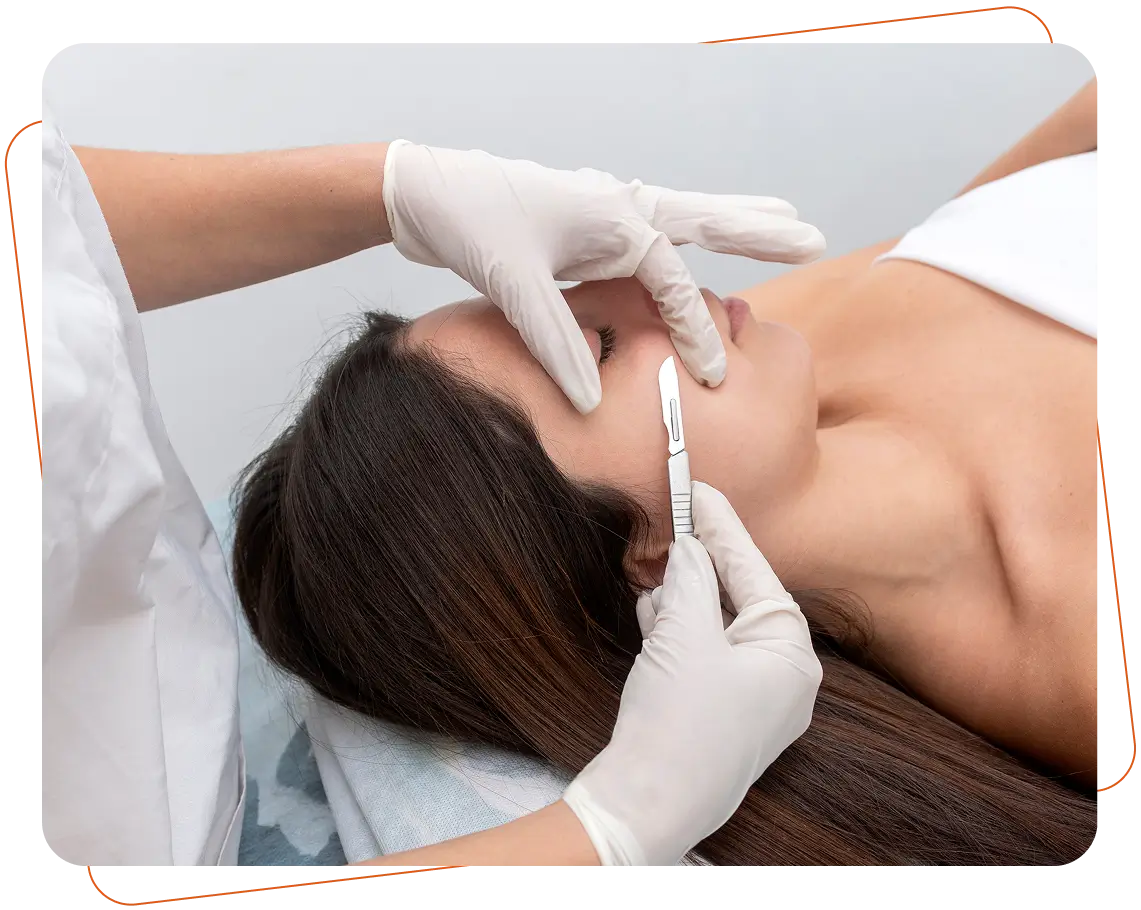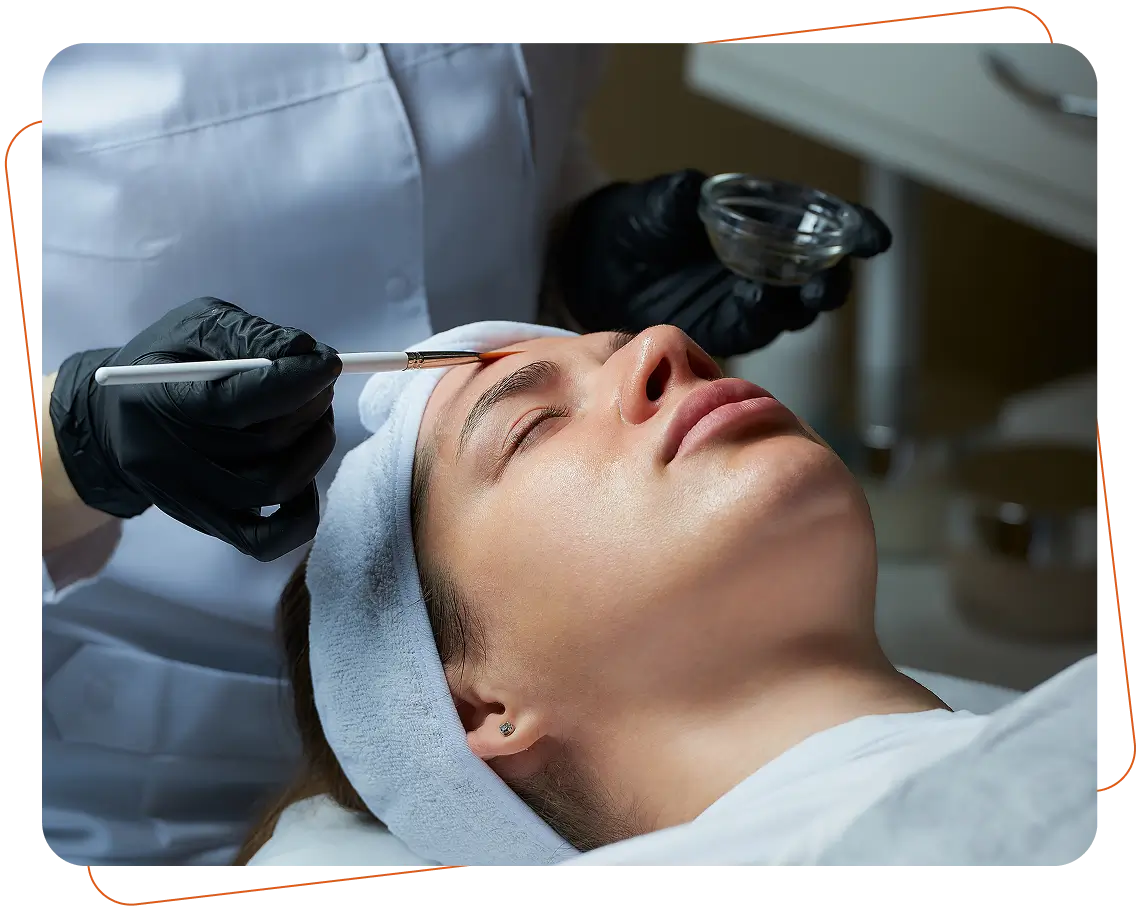Dermaplaning

Dermaplaning
Dermaplaning is a non-invasive cosmetic procedure that exfoliates the skin by gently scraping off the top layer of dead skin cells and fine vellus hair (often referred to as “peach fuzz”). This technique results in a smoother skin texture and a brighter complexion.
Benefits
- Smoother Skin Texture: Removes dead skin cells, leading to a softer feel and improved texture.
- Improved Skin Radiance: Reveals a fresh layer of skin, resulting in a more radiant appearance.
- Enhanced Product Absorption: By removing the top layer of dead skin, products can penetrate more effectively, maximizing their benefits.
- Reduced Appearance of Acne Scars: Can help diminish the look of superficial scars and uneven skin tone.
- Makeup Application: Creates a smooth canvas for makeup application, allowing for a more flawless finish.


Who Benefit?
Dermaplaning is suitable for a wide range of skin types and concerns, including:
- Dull Skin: Ideal for individuals looking to brighten and revitalize their complexion.
- Dry Skin: Helps remove dry, flaky patches, enhancing hydration.
- Sensitive Skin: A gentle exfoliation method that can be beneficial for those who may not tolerate stronger chemical peels.
- Acne-Prone Skin: Can improve the overall texture without the use of harsh chemicals, though it may not be suitable for active breakouts.
- Aging Skin: Reduces the appearance of fine lines and wrinkles by promoting cell turnover.
Frequently Asked Questions
It’s possible for some individuals to experience temporary breakouts as dead skin cells are removed, but this typically resolves quickly.
It is recommended to avoid makeup for at least 24 hours post-treatment to allow the skin
to breathe and recover.
Most individuals benefit from sessions every 4 to 6 weeks, depending on their skin type
and concerns.
Dermaplaning generally has minimal downtime, with most individuals returning to their
normal activities immediately after.
Yes, dermaplaning can be safely combined with facials, chemical peels, and other skin
treatments. However, consult with your provider to determine the best combination for
your skin.
Individuals with active acne, eczema, or severe rosacea may need to avoid dermaplaning.
Always consult a skincare professional for personalized advice.
